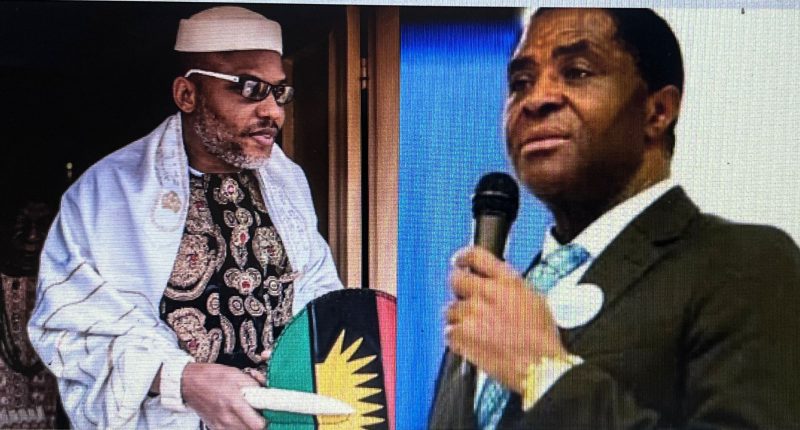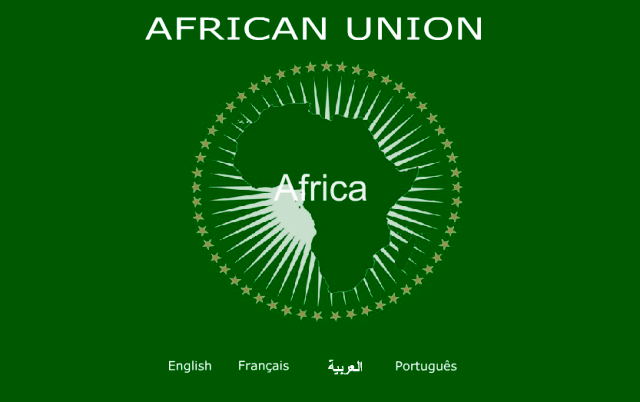Editorial: Will Nigeria Follow Kenya’s Lead in Addressing the NERA 10 Abduction?
The recent landmark ruling by the Kenyan High Court declaring the 2021 abduction and rendition of Nnamdi Kanu, leader of the Indigenous People of Biafra (IPOB), as unlawful and unconstitutional has sent ripples across Africa. The court’s decision, which awarded Kanu KSh10 million (46.3 million FCFA) in damages, has been hailed as a victory for justice, exposing the illegality of extraordinary rendition and reinforcing the importance of upholding international human rights law. This ruling prompts a critical question: will Nigeria, often self-styled as the “big brother” of Africa, demonstrate similar judicial courage in addressing the case of the NERA 10, a group of Ambazonian leaders including Sisiku Julius Ayuk Tabe, abducted in Nigeria and forcibly transferred to Cameroon in January 2018?
The NERA 10 Case: A Parallel Injustice
The NERA 10, comprising Sisiku Julius Ayuk Tabe and nine other Ambazonian leaders, were arrested on January 5, 2018, at Nera Hotel in Abuja, Nigeria, during a leadership meeting. These individuals, many of whom held Nigerian citizenship or refugee status under UNHCR protection, were advocating for the independence of Ambazonia, the English-speaking regions of Cameroon. Without formal extradition proceedings, they were forcibly transferred to Cameroon, where they faced trial and were sentenced to life imprisonment in 2019 on charges including terrorism and secession. The abduction and rendition process was marked by allegations of secrecy, lack of due process, and violations of both Nigerian and international law, including the principle of non-refoulement, which prohibits returning refugees to countries where they face persecution.
The parallels between the Kanu and NERA 10 cases are striking. Like Kanu, the NERA 10 were abducted in a foreign country (Nigeria) and handed over to another (Cameroon) without legal extradition processes. Both cases involve allegations of state complicity at the highest levels, with IPOB accusing former Nigerian and Kenyan leaders of orchestrating Kanu’s rendition, while reports suggest Nigerian authorities collaborated with Cameroon to detain and transfer the Ambazonian leaders. The Kenyan court’s ruling sets a precedent that such actions violate fundamental rights, including the right to due process and protection from arbitrary detention.
Nigeria’s Judicial and Political Landscape
Nigeria’s claim to regional leadership rests on its economic might, population, and diplomatic influence. However, its handling of the NERA 10 case raises questions about its commitment to justice and the rule of law. Unlike Kenya, where an independent judiciary has now challenged state overreach, Nigeria’s courts have yet to meaningfully address the NERA 10 abduction. Despite international outcry from human rights organizations and the Ambazonian diaspora, the case has languished, with little progress toward accountability.
Several factors complicate Nigeria’s ability to deliver a ruling akin to Kenya’s. First, Nigeria’s judiciary faces accusations of political interference, particularly in high-profile cases involving separatist movements. The Nigerian government’s sensitivity to secessionist agitation, fueled by its own history with Biafra and ongoing insurgencies, may deter courts from ruling against state actions in the NERA 10 case. Second, Nigeria’s diplomatic and economic ties with Cameroon, including shared interests in regional security, likely influenced the decision to facilitate the 2018 rendition. Admitting fault could strain these relations and expose Nigeria to further scrutiny over its human rights record.
The Kenyan Precedent: A Call to Action
The Kenyan court’s ruling on Kanu’s case demonstrates that African judiciaries can hold governments accountable for violating international law. By declaring the rendition unconstitutional and awarding damages, Kenya has signaled that state power must be exercised within legal boundaries. This precedent could embolden Nigerian courts to re-examine the NERA 10 case, particularly given the similarities in the violations involved. The principle of non-refoulement, breached in both cases, is a cornerstone of international refugee law, and Nigeria, as a signatory to relevant conventions, is obligated to uphold it.
Moreover, the Kanu ruling highlights the role of public and international pressure. IPOB’s sustained advocacy, coupled with media coverage, kept Kanu’s case in the spotlight, paving the way for judicial intervention. The Ambazonian diaspora and human rights groups must similarly amplify the NERA 10 case, leveraging platforms like BaretaNews to demand justice. Nigeria’s courts, while not immune to political influence, have occasionally shown independence, as seen in past rulings challenging state actions. A concerted push could encourage a judicial review of the NERA 10’s abduction and detention.
Will Nigeria Step Up?
For Nigeria to rule as Kenya did would require both judicial courage and political will. The Kanu case exposed the complicity of multiple governments, and a similar ruling on the NERA 10 would implicate Nigeria’s own authorities in a breach of sovereignty and human rights. Such a decision would affirm Nigeria’s commitment to the rule of law and enhance its credibility as a regional leader. However, it would also risk diplomatic fallout with Cameroon and domestic backlash from those who view separatist movements as existential threats.
The NERA 10 case is a litmus test for Nigeria’s judiciary and its self-proclaimed role as Africa’s “big brother.” If Nigeria aspires to lead, it must demonstrate leadership not only in power but in principle. A ruling acknowledging the illegality of the NERA 10’s abduction—similar to Kenya’s stance on Kanu—would send a powerful message about Nigeria’s commitment to justice. It would also offer hope to the Ambazonian people, who continue to endure a forgotten crisis marked by displacement, violence, and impunity.
Conclusion
The Kenyan court’s ruling on Nnamdi Kanu’s abduction is a beacon of hope for those seeking justice for the NERA 10. While Nigeria’s political and judicial landscape presents challenges, the Kanu precedent underscores that accountability is possible. The Ambazonian struggle, often overshadowed by other global crises, demands urgent attention. BaretaNews calls on Nigeria to rise to the occasion, investigate the NERA 10’s unlawful rendition, and uphold the principles of justice and human rights. Only then can Nigeria truly claim the mantle of Africa’s “big brother.”
Sources: Information on the Kanu ruling draws from recent reports, including Leadership.ng (June 27, 2025). Details on the NERA 10 case are based on accounts from human rights organizations and Ambazonian advocacy platforms.





